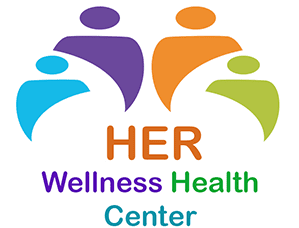Click HERE To Buy Accutane Online ↓

The Role of Diet in Combatting Side Effects
Navigating the journey of Accutane treatment can feel like a balancing act, especially when it comes to maintaining a healthy diet. A nutritious diet plays a pivotal role in alleviating some common side effects such as dry skin and fatigue. Integrating certain foods can significantly enhance the body’s ability to cope with these challenges. For instance, Omega-3 rich foods like salmon and flaxseeds can help maintain skin elasticity and moisture. Zinc-rich foods, including lentils and chickpeas, support better immune function and skin health. Additionally, vitamin E can be fortified by consuming nuts and seeds, protecting against dry, flaky skin commonly experienced during Accutane treatment.
```html
| Food | Benefits |
|---|---|
| Salmon | Omega-3 provides skin moisture |
| Chickpeas | Rich in Zinc for immune defense |
| Nuts | Vitamin E supports skin health |
Nutrient-rich Foods to Promote Skin Healing

Achieving vibrant skin while on Accutane involves embracing a diet rich in specific nutrients. Omega-3 fatty acids, found abundantly in fish like salmon, flaxseeds, and walnuts, are a boon for reducing inflammation and supporting skin barrier function. Vitamin A, present in leafy greens such as spinach and kale, assists in cell turnover and skin repair, complementing the effects of Accutane.
Protein-rich foods like lean chicken, tofu, and legumes aid in the regeneration of skin cells, which is paramount when the skin is undergoing treatment. Zinc, another crucial element found in pumpkin seeds and lentils, supports tissue healing and reduces inflammation. Emphasizing such nutrient-dense foods not only fosters skin health but also helps mitigate the drying effects commonly associated with Accutane therapy.
The Importance of Hydration While on Accutane
Accutane, a powerful ally in the fight against acne, demands careful attention to hydration. Staying well-hydrated assists the body in flushing out toxins and supports overall skin health during the course of treatment. As Accutane can lead to dryness and dehydration, drinking plenty of water is essential to counteract these effects.
Adequate hydration also aids in maintaining the balance of natural oils in the skin, which Accutane tends to disrupt. Consuming water-rich foods, such as cucumbers, watermelon, and oranges, can be a refreshing way to boost hydration. Herbal teas and coconut water can also contribute to your daily fluid intake, ensuring your body stays resilient and your skin remains supple.
Foods to Avoid for Optimal Accutane Results

While on Accutane, your skin becomes overly sensitive and vulnerable. To ensure optimal results, steer clear of high-glycemic foods like white bread and sugary snacks, which can elevate inflammation. Dairy products, particularly milk, have been linked to acne exacerbation and may counteract Accutane's benefits. Additionally, spicy foods can increase the likelihood of irritating side effects like flushed skin. Keeping these triggers in check is crucial for a smoother journey.
Moreover, fatty and fried foods can strain your liver, a critical organ processing Accutane. This added stress might hinder your treatment progress. By limiting your intake of these problematic foods, you'll better support your body's ability to heal effectively and enhance Accutane's performance. Instead, focus on a balanced diet to complement and optimize your skincare routine.
Incorporating Antioxidants for Skin Protection
Harnessing the power of antioxidants can play a pivotal role in protecting and rejuvenating the skin, especially for those on Accutane. Antioxidants are crucial in neutralizing free radicals, hence reducing oxidative stress and potential skin damage. Including foods rich in vitamins C and E, like oranges, strawberries, and spinach, can enhance skin resilience and promote a healthier complexion. Additionally, integrating green tea and nuts into your diet provides polyphenols and selenium, essential for maintaining skin integrity. To simplify incorporating these antioxidant-rich foods, here’s a handy guide:
| Antioxidant Source | Benefits | Examples |
|---|---|---|
| Vitamin C | Boosts collagen production | Oranges, strawberries |
| Vitamin E | Protects skin from damage | Almonds, spinach |
| Polyphenols | Reduces inflammation | Green tea, cherries |
| Selenium | Prevents oxidative stress | Brazil nuts, eggs |
Embracing these nutrient-dense options not only helps mitigate Accutane’s drying effects but also supports overall skin vitality. Engaging with a diet enriched in antioxidants allows for a proactive approach to skincare, ensuring a smoother journey while undergoing treatment.
Meal Planning Tips for Accutane Users
When planning meals on Accutane, focus on incorporating nutrient-dense foods that support overall health and skin healing. Begin with a variety of colorful vegetables and fruits rich in vitamins and antioxidants. Pair these with proteins like lean meats, fish, or plant-based alternatives, which help in tissue repair and immune function. Healthy fats from avocados, nuts, and olive oil are essential.
Meal prepping is particularly beneficial for Accutane users to maintain a balanced diet while managing busy schedules. Plan your meals to include a mix of protein, carbohydrates, and healthy fats, ensuring you meet your nutritional needs. Simple, home-cooked meals can improve compliance with dietary guidelines and enhance Accutane’s benefits.
Consider regular meal times and controlled portion sizes to prevent unwanted weight gain, a potential side effect of Accutane. Staying organized with weekly menu planning can reduce the temptation to consume processed foods. Experiment with herbs and spices to make healthier dishes more appealing, ensuring sustainable and enjoyable eating habits. For more comprehensive information, explore these resources: NCBI Accutane Overview and DermNetNZ Isotretinoin Guide.
